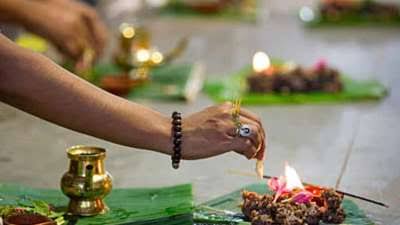The sacred 16-day period of Pitru Paksha, also known as Shraddha, begins on September 17 and will conclude on October 2, 2024. This period, which starts on the Pratipada Tithi of Krishna Paksha in the month of Bhadrapada, culminates on Mahalaya Amavasya or Sarva Pitru Amavasya. During this time, Hindus honour their ancestors by performing rituals aimed at ensuring their peace and seeking their blessings.
Pitru Paksha holds profound spiritual significance in Hinduism. It is believed that during this period, the souls of deceased ancestors descend to Earth, and families perform rituals to offer nourishment and peace to them. The primary ritual observed is Shraddha, during which prayers and food are offered to the departed. Additionally, many people take the opportunity to perform the Pitru Dosha Puja, a special ritual meant to remove any ancestral curse or dosha affecting their lives.
Dos and Don’ts for Pitru Paksha 2024
To observe Pitru Paksha respectfully, certain guidelines must be followed. Below are the key practices to keep in mind during this solemn period.
Pitru Paksha Dos:
- Perform Shraddha on the Right Day: Ensure the Shraddha rituals are conducted on the appropriate tithi (date) that corresponds with the ancestors’ death anniversaries.
- Offer Pind Daan: The offering of pind (rice balls mixed with sesame seeds and water) is a central part of Shraddha, believed to nourish the souls of ancestors in the afterlife.
- Engage in Spiritual Practices: Reading scriptures like the Bhagavad Gita or Ramayana, chanting mantras, and participating in satsangs (spiritual gatherings) help create an atmosphere conducive to honouring ancestors.
- Charity and Donations: Donating food, clothes, or money to the needy is an important part of Shraddha. These acts are believed to bring peace to the souls of ancestors and merit to the family.
- Maintain Purity: Following a simple vegetarian diet and avoiding alcohol is recommended, as purity in thought, word, and deed is emphasized during this period.
- Feed the Needy: Hosting a meal for Brahmins or the needy, known as Brahma Bhojan, is considered a crucial aspect of the rituals.
- Remember and Honour Your Ancestors: Taking time to remember and express gratitude to deceased loved ones is an integral part of the observance.
Pitru Paksha Don’ts:
- Avoid Celebrations: Pitru Paksha is a period of solemnity, and celebrations, purchasing new items, or starting new ventures are considered inauspicious.
- Refrain from Non-Vegetarian Food: Consuming non-vegetarian food, garlic, and onions is believed to disturb the sanctity of the rituals.
- Avoid Travelling: Long journeys should be avoided during Pitru Paksha, as performing rituals for ancestors takes precedence.
- Do Not Cut Hair or Nails: Cutting hair or nails during this period is considered inauspicious and disrespectful to the observance.
- Stay Away from Negative Behaviour: Anger, arguments, and negative actions can disrupt the spiritual atmosphere required for Shraddha rituals.
Key Rituals for Pitru Paksha
- Tarpan: This involves offering water mixed with black sesame seeds to ancestors, believed to provide pure water to their souls in the afterlife.
- Pinda Daan: Offering pind (rice balls made with ghee and sesame seeds) is a core ritual, intended to support the ancestors’ souls in their journey.
- Shraddha Ceremony: Families often conduct elaborate Shraddha ceremonies during this period, offering food, clothes, and other necessities to Brahmins in memory of the departed.
- Charity: Acts of charity performed during Pitru Paksha benefit both the living and the departed, bringing blessings to the family.
- Fasting: Some people observe fasting during this period as a mark of respect for their ancestors, enhancing the spiritual benefits of the rituals.
By observing these rituals and guidelines, families can honour their ancestors appropriately during Pitru Paksha 2024, ensuring peace for their souls and receiving blessings for health, prosperity, and well-being.
👉 Click here to read the latest Gujarat news on TheLiveAhmedabad.com



